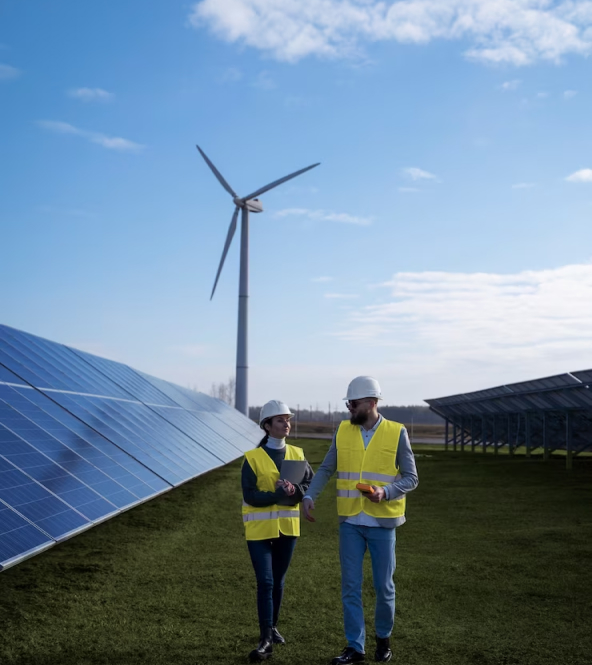The Key Benefits of Using a Q Cell Anti LID Technology

Are you tired of paying the skyrocketing energy bills? Imagine harnessing solar energy to power your home and save money in the long run. While solar energy is a clean and renewable power source, solar panels are not immune to manufacturing faults and extreme weather conditions that eventually decrease panels’ efficiency. LID is one such issue that causes degradation in the panel’s production capacity.
Q Cell solar systems have foreseen these problems and introduced their cutting-edge anti-LID technology. It will help panels to withstand the harsh Australian weather conditions and combat degradation, providing maximum efficiency for years to come. But what is Light-Induced Degradation, and how getting Q Cell panels will benefit you in the long run?
To clear all such doubts, read this blog on ‘Using Q Cell Anti LID Technology.’
What is Light-Induced Degradation?
Light-Induced Degradation(LID) is a phenomenon that causes a significant reduction in the performance and lifespan of solar panels. It occurs due to the exposure of solar panels to direct sunlight for the first time during the early hours of installation.
LID prominently happens due to a chemical reaction between oxygen and boron-doped silicon wafers, known as a boron-oxygen defect. This reaction primarily arises in monocrystalline silicon cells (P-type) during manufacturing through the Czochralski method. This manufacturing method involves a high oxygen concentration, forming a harmful boron oxygen complex that reduces panel efficiency over time due to exposure to sunlight.
Generally, manufacturers try to safeguard solar panels from the LID effect by performing an initial lab test known as power stabilization. However, the lab tests do not accurately replicate the impacts of direct sunlight.
As a result, when the sunlight reaches solar panels during installation, they face a drastic reduction in solar production and later stabilize at a degradation rate of around 0.3%-0.7% per year till the warranty period. But the actual LID rate can vary with solar panel brands and modules.
What is the effect of LID on solar modules?
Even after initial lab tests, the solar panel can still be affected by LID, resulting in issues like buckling, breaking down or wrapping. It leads to two main effects on solar modules:
-
Efficiency Reduction
LID causes a decrease in the efficiency of the panels, meaning that you’ll end up paying higher electricity bills due to less energy generation.
-
Shorten Panels Lifespan
As the efficiency of the panels continues to decline due to LID, you may need to repair or replace the panels sooner than expected. It means additional maintenance and replacement costs.
Benefits of Q Cell solar system
-
Anti-LID Technology
Q Cell has recognized the LID issue that affects most p-type solar panels, reducing their efficiency by up to 6% over time. Using their innovative Q Cell Anti-LID Technology, they’re able to stabilize the boron-oxygen compounds and significantly extend the performance of solar panels. Hence, Hanwha Q Cells Q.ANTUM solar modules deliver more efficiency and better performance than any other system.
-
Temperature Coefficient
Solar panels generate less electricity when they become hot, causing power generation issues during the warm climates of Australia. But Q Cell systems have a lower temperature coefficient, which means they can generate more electricity even during warm weather conditions. It makes them more efficient, resulting in higher energy savings for the consumer.
-
Outstanding Efficiency
Q Cell solar panels have an efficiency rate of 17.1% to 20.1%, higher than the industry average. It means they can generate more electricity per square meter of the panel, making it easy to install in less rooftop space.
-
Anti-PID
PID – Potential Induced Degradation happens to PV modules due to wet weather conditions, decreasing their efficiency by 20%. All Q Cell panels are equipped with Anti-PID Technology, allowing them to resist the effects of corrosive elements.
-
Highest Quality
Q Cells uses an industry-leading quality control system, testing solar panels multiple times under extreme weather conditions, ensuring the longevity and high quality of the products.
-
Amazing Durability
Q Cells has built solar modules to withstand cyclones and harsh weather conditions such as extreme temperatures, high winds, and heavy rain, making them suitable for the Australian climate.
-
Warranty
Q Cell solar systems come with a warranty of up to 25 years, which gives customers peace of mind knowing that their investment is protected.
-
Excellent low-light performance
Q Cell offers excellent performance even during low light conditions, providing a reasonable amount of solar power even on cloudy days.
Conclusion
Q Cells’ Anti LID technology is a game-changer in the solar industry, offering numerous benefits to Australian consumers. Its durability, efficiency, and cost-saving potential make it a worthwhile investment for households and businesses looking to switch to renewable energy sources.
We hope this blog has provided valuable insights about what is the LID effect in solar modules and how using a Q Cell Anti LID Technology will benefit you.
To install Q Cell solar panels, connect with the Supreme Solar Power team today!




